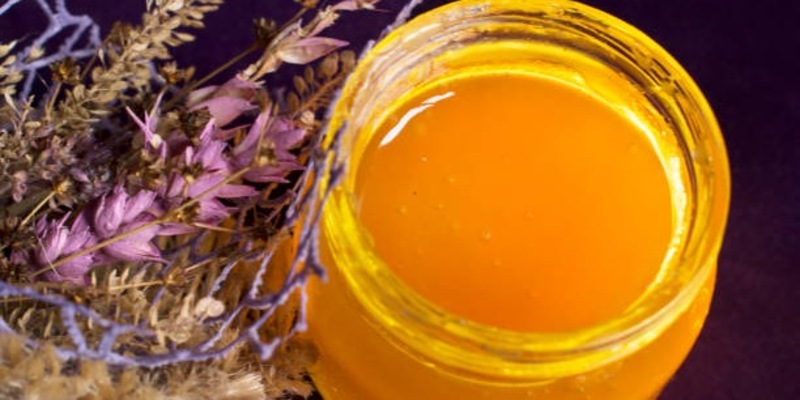Unveiling the Secrets of Honey: Your Winter Skincare Savior
Feb 29, 2024 By Madison Evans
Honey, a natural substance with incredible properties, is not only a wholesome sweetener but also an exceptional skincare ally during the harsh winter months. It's a powerhouse of antioxidants, enzymes, and nutrients that provide a moisture-rich, soothing, and healing touch to the skin. Applying honey topically can enhance your skin's resilience against cold temperatures and dry winds, which often strip away its natural moisture. Moreover, its antibacterial properties help to keep skin purified and clear. As we delve into the beneficial aspects of honey for winter skincare, we'll discover how this golden elixir can keep your skin soft, supple, and glowing despite the season's challenges.
History of honey in traditional remedies:
Honey has been used for centuries in traditional medicine, dating back to ancient civilizations such as the Egyptians and Greeks. These cultures recognized honey not only as a sweetener but also as a powerful healing agent. In fact, honey was often referred to as "liquid gold" due to its valuable properties. In traditional remedies, honey was primarily used topically for its antibacterial and anti-inflammatory properties. It was also believed to have moisturizing and rejuvenating effects on the skin, making it a popular ingredient in skincare routines.
The science behind honey's skincare benefits:
Modern science has provided evidence for many of the traditional beliefs about honey's healing properties. Honey contains high levels of antioxidants, which protect the skin from damage caused by free radicals. It also has humectant properties, meaning it helps to retain moisture in the skin and prevent dryness. Additionally, honey has natural anti-inflammatory and antibacterial properties, making it effective for treating acne-prone skin. It can also help to soothe and heal irritated or damaged skin.
Why Honey is Effective against Dry Winter Skin?

During the colder months, our skin is constantly exposed to harsh elements such as cold winds and dry indoor heating. This can strip the skin of its natural oils and moisture, leaving it dry, flaky, and prone to irritation. Honey has a unique ability to combat these effects and provide nourishment to the skin. One of the main reasons honey is effective against dry winter skin is its humectant properties.
Honey helps to retain moisture in the skin, preventing it from becoming dry and tight. It also has emollient properties, meaning it can soften and smooth the skin's surface, making it look more radiant and supple. Moreover, honey contains enzymes that produce hydrogen peroxide when diluted with water. This makes it a natural antiseptic, helping to fight off any bacteria or infections that may cause dryness or irritation on the skin. Honey also has anti-inflammatory properties, which can reduce redness and soothe any existing skin conditions.
Honey's hygroscopic nature: retaining moisture:
Honey's hygroscopic nature is what makes it such a powerful ingredient for retaining moisture in the skin. Hygroscopy refers to the ability of a substance to attract and hold onto water molecules from its surroundings. Honey has a high concentration of sugar molecules, which are hygroscopic and draw moisture into the skin. This not only helps to hydrate dry skin but also creates a protective barrier to prevent further moisture loss. This is especially beneficial during the winter months when our skin is more prone to dehydration.
Honey as an exfoliant:
In addition to its hydrating properties, honey can also act as a gentle exfoliant, helping to remove dead skin cells and reveal brighter, smoother skin. It contains natural enzymes that break down the bonds between dead skin cells, making it easier to slough off. This can help to improve the texture and appearance of the skin, leaving it looking rejuvenated and glowing.
How to Incorporate Honey into Your Winter Skincare Routine?
There are several ways you can incorporate honey into your winter skincare routine to reap its benefits. One of the simplest ways is to use it as a face mask. You can mix raw, organic honey with other natural ingredients such as yogurt or avocado for added nourishment and apply it onto your skin for 10-15 minutes before rinsing off with warm water. This will help to hydrate and revitalize your skin, leaving it feeling soft and supple.
You can also use honey as a spot treatment for acne-prone skin by dabbing a small amount onto blemishes overnight. Additionally, using skincare products that contain honey as an ingredient can also provide similar benefits. Look for moisturizers, face oils, or serums that list honey as one of the main ingredients.
Selecting the right type of honey:
Not all honey is created equal. Different types of honey have different levels of antioxidants and other beneficial properties. Manuka honey, for example, is known for its potent antibacterial properties and is often used in medical-grade wound dressings. However, any raw, organic honey can provide benefits for the skin. Consider trying different types to see what works best for your skin type and concerns. Keep in mind that darker honey tends to have higher levels of antioxidants.
Best practices to maximize benefits and minimize risks:

To maximize the benefits of honey in your skincare routine, here are some best practices to keep in mind:
- Use raw, organic honey: Choose a high-quality honey that is free from additives or preservatives for maximum benefits.
- Avoid using on open wounds: Honey may cause stinging or irritation on open wounds or cuts, so avoid using it in those areas.
- Keep an eye on expiration dates: While honey has a long shelf life, it can still expire. Check the expiration date on your honey before using it in your skincare routine.
- Consider the source of honey: Choose honey from a trusted source to ensure it is raw, organic and free from contaminants or additives.
Conclusion:
Honey has been used for centuries as a natural remedy for various ailments, including skincare. Its hydrating, soothing, and exfoliating properties make it an excellent addition to your winter skincare routine. Whether used as a face mask, spot treatment or in skincare products, honey can help keep your skin hydrated, bright and healthy during the harsh winter months. Just remember to choose high-quality, raw honey and follow safety precautions for a safe and effective use. With these tips in mind, say goodbye to dry, dull skin and hello to a radiant complexion with the help of honey.








